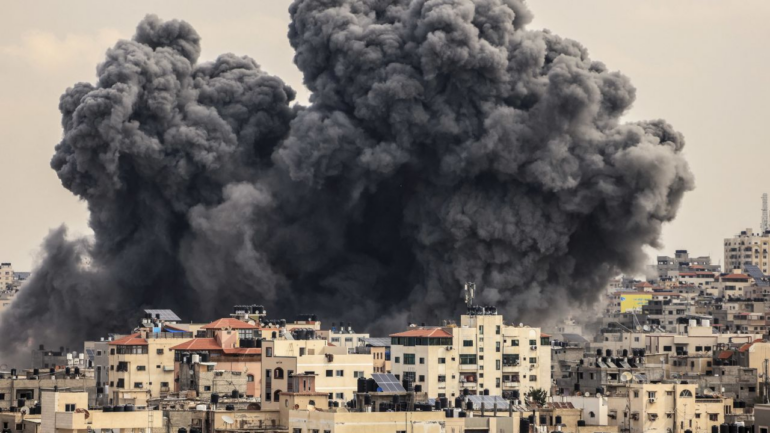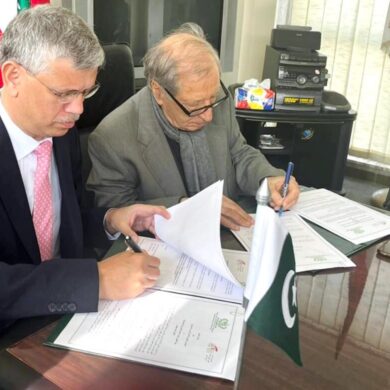Israel is on the brink of launching a ground offensive in Gaza after the ongoing conflict between Hamas and Israel entered into eighth day claiming the lives of more than 3,500 people in the region.
The conflict started with the surprise attack of Hamas on Israel which swiftly retaliated with a relentless bombing campaign, resulting in the tragic death toll of over 2,200 in Gaza.
Israel’s military has issued urgent warnings to approximately 1.1 million Gazans residing in the northern regions, urging them to evacuate southward in anticipation of the imminent ground incursion.
Gaza City, the epicenter of Hamas’ leadership, appears to be the primary focus of the Israeli military’s offensive strategy.
The United Nations, in response to Israel’s evacuation order, reported a “mass displacement” as hundreds of thousands of Palestinians fled southwards, desperately seeking safety from the escalating conflict.
Israel has already imposed a complete blockade, severing vital supply lines including food, water, fuel, and electricity to Gaza’s 2.4 million inhabitants. This has pushed the region to the brink of a catastrophic humanitarian crisis, with aid agencies warning of imminent disaster.
Hospitals in the southern Gaza Strip are already overwhelmed, and the World Health Organization has grimly stated that forcing patients to relocate could be “tantamount to a death sentence.”
Egypt, acting as a critical intermediary, has faced formidable challenges in facilitating aid and evacuation efforts due to the volatile situation. The Rafah crossing, the sole passage not controlled by Israel, has been shuttered, leaving essential humanitarian aid stranded at the border, exacerbating the plight of Gaza’s beleaguered population.
Internationally, diplomatic efforts to broker a ceasefire are in full swing. The United States, in a bid to deter hostile actions against Israel, deployed an additional aircraft carrier.
Simultaneously, China’s envoy is set to visit the Middle East to promote peace talks, underscoring the global community’s mounting concern.
Saudi Arabia, echoing the urgency of the situation, has been a vocal advocate for an immediate ceasefire, emphasizing the paramount importance of protecting civilians caught in the crossfire.
The conflict has not only raised concerns about escalating regional tensions but has also drawn Lebanon into the fray. Hezbollah, a significant player in Lebanon, has engaged in deadly clashes with Israel, sparking fears of a broader conflict.
Iran, issuing a stark warning, stated that if Israel’s “war crimes and genocide” are not halted, the consequences could be “far-reaching.”
Amid the chaos, the fate of hostages held in Gaza remains precarious. Hamas, accused of using civilians as human shields, has threatened to execute hostages one by one for every unannounced Israeli airstrike, adding a chilling layer of urgency to international efforts at conflict resolution.
Complicating matters further, Israel’s communications minister has proposed the closure of Al Jazeera’s local bureau. The minister alleges that the news station is engaging in pro-Hamas incitement and endangering Israeli soldiers by its reporting. This move has drawn criticism from press freedom advocates, further muddying the waters in an already complex and volatile situation.
As the world holds its breath, Palestinian leaders are urgently calling for international intervention. The global community watches with deep concern as diplomatic efforts intensify, recognizing the pressing need for a peaceful resolution to this escalating conflict.



